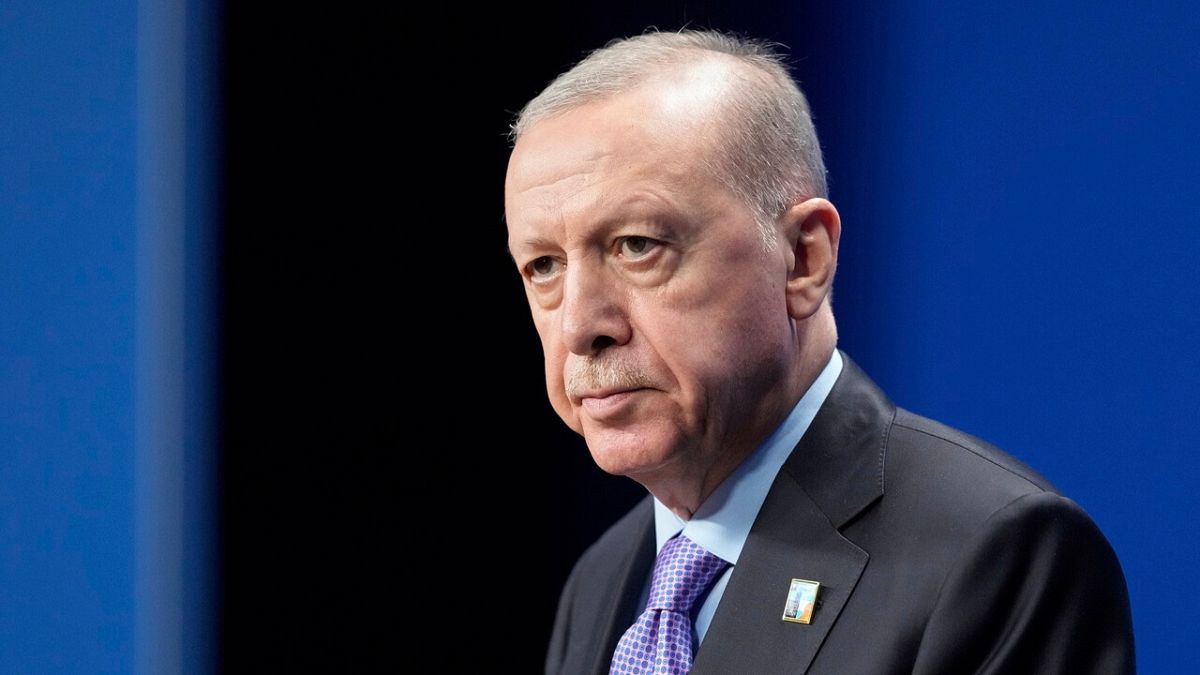

In a significant stride towards peace, Turkey’s President Recep Tayyip Erdogan has heralded the disarmament of the Kurdistan Workers’ Party (PKK) as a monumental event marking the opening of a “new page in history.” The PKK, initially founded to establish a Kurdish state within the southeastern region of Turkey, has shifted its objectives over the decades. The group’s goals had evolved into advocating for greater autonomy and rights for Turkey’s significant Kurdish population. This change in course towards dialogue and disarmament signals a positive turn in a long-standing conflict that has left a lasting impact on the region.
The symbolic ceremony marking the PKK’s decision to lay down arms took place in Iraq, where the group’s members began handing over their weapons as part of a broader peace initiative with the Turkish government. This development is seen as a crucial step in a process that has been marred by years of violence and political tension. The ceremony stands as a testament to the persistent efforts by both sides to reach a peaceful resolution, underscoring the dedication to dialogue and reconciliation. It reflects a shared hope for a future where differences are resolved through negotiation rather than conflict.
This move towards disarmament is viewed as a significant victory for Turkey under President Erdogan’s leadership. It represents a potential end to a conflict that has claimed numerous lives and hindered regional stability and cooperation. Erdogan’s optimistic comments highlight the importance of this agreement, which could foster a more harmonious relationship not only within Turkey but also with neighboring regions that have been affected by the ongoing strife. The Turkish leader’s statement emphasizes the historical nature of this moment, suggesting that it may pave the way toward peace and prosperity in an area long fraught with turmoil.
Alongside these developments, the Middle East continues to navigate complex diplomatic landscapes. Notably, Iran has expressed willingness to resume nuclear talks, contingent upon assurances from the United States of no further attacks on its territory. This statement follows recent incidents involving the US and Israel reportedly striking Iranian nuclear facilities in June, efforts that were said to have not fully achieved their intended destructive goals. These events highlight the ongoing tensions in the region and the delicate balance of power that must be carefully managed through diplomatic channels.
Particularly poignant is Iran’s response to these incidents, where President Ebrahim Raisi claimed that attempts were made on his life by Israel during a meeting he was attending. This accusation adds another layer to the intricate geopolitical dynamics in the region, showcasing the need for calm and calculated dialogue to prevent further escalation and to promote stability.
Both Turkey and Iran’s current affairs illustrate a broader regional context where the pursuit of peace is a recurring motif amidst historical grievances and strategic interests. Turkey’s engagement in the process of reconciliation with the PKK serves as a reminder of the potential for peace when earnest efforts are made towards understanding and resolving differences. Meanwhile, Iran’s cautious approach to resuming diplomatic talks with the United States reflects the nuanced considerations involved in international negotiations, influenced by past confrontations and the drive for security assurances.
The importance of mutual understanding and cautious optimism in these situations cannot be overstated. With the PKK’s disarmament symbolizing a hopeful turn for Kurdish rights and Turkish unity, it becomes an inspiring example for other regions grappling with similar challenges. Similarly, Iran’s willingness to engage in discussions underscores the potential of diplomacy in easing tensions and forging a path forward in areas of conflict.
In essence, these developments across Turkey and Iran contribute to a tapestry of initiatives striving for a semblance of peace and stability in the Middle East. They show the importance of patient negotiations and genuine commitments to peaceful resolutions over acts of aggression. Together, they invite a broader reflection on the effectiveness of communication and cooperation in addressing deep-rooted conflicts, paving the way for a future where peaceful coexistence is not simply aspired to but achieved.
Source: {link}
